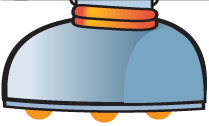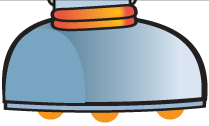Pediatric Dental FAQ
Many parents have questions about what to expect in regard to their child’s first visit to the dentist. Here are some of the most common pediatric dental FAQs.
Q. At what age should my child first see the dentist?
A. According to the American Academy of Pediatric Dentists, children should see the dentist by their first birthday or within six months of getting their first tooth, whichever comes first. Parents often wonder why a visit to the dentist is necessary at such a young age. You may be surprised to learn that 10% of 2 year olds and 40% of 4 year olds have tooth decay. Starting regular checkups and preventative care early will help to develop good habits and minimize the chance that your child will develop tooth decay.
Q. What will happen at my child’s first dental visit?
A. The dentist will examine your child’s teeth, gums, and bite. The dentist will discuss your child’s dental health and needs with you and answer any questions that you might have. When appropriate, x-rays may be taken. If additional services or treatments are needed, an appointment will be scheduled for another date.
Q. Why should I take my child to a pediatric dentist instead of my family dentist?
A. A pediatric dentist specializes in treating children. He/she has specialized knowledge about caring for a child’s dental health. Pediatric dentists also know how to work with children to keep them calm and comfortable during their visit and treatment. The entire staff and office environment are geared toward working with children and making children feel comfortable.
Q. When should I expect my child to get his first baby teeth and adult teeth?
A. Teeth come in at a different time for every child. You can refer to the charts available at the following links, but keep in mind that there is a wide range of “normal” ages for teeth to erupt.
http://www.ada.org/public/games/animation/index.asp
http://www.ada.org/public/topics/tooth_eruption.asp
Q. When my baby is teething, what can I do to make him more comfortable?
A. Give your baby a cold, wet washcloth or teething ring to chew on. You can also apply a very small amount of teething gel to the gums.
Q. Why should I worry about tooth decay if the baby teeth are going to fall out anyway?
A. Your baby’s teeth are very important for a variety of reasons; they are essential for eating and speech as well as appearance. They also serve to hold the space where the permanent, adult teeth will later grow in. When baby teeth become decayed and fall out too early, the adult teeth are at greater risk for overcrowding.
Q. My child has space between her baby teeth. Does this mean she will need braces?
A. No! This is great news. Space between the baby teeth is important, because it means that there is plenty of room for the larger, permanent teeth to grow in later on.
Q. Is using a pacifier bad for my baby’s teeth? At what age should I take the pacifier away?
A. When pacifiers are used for long periods of time, they can cause crowding of the teeth and bite problems. The same is true for thumb sucking. Most children give up the habit around two years of age. If you are concerned, talk with your dentist about ways to break the habit.
These are some of the frequently asked questions posed by parents. If you have a child who needs to visit the dentist, contact Tustin Pediatric Dentistry. Our dentists are experienced pediatric dentists who specialize in working with kids just like yours. Call the office to make an appointment today.










